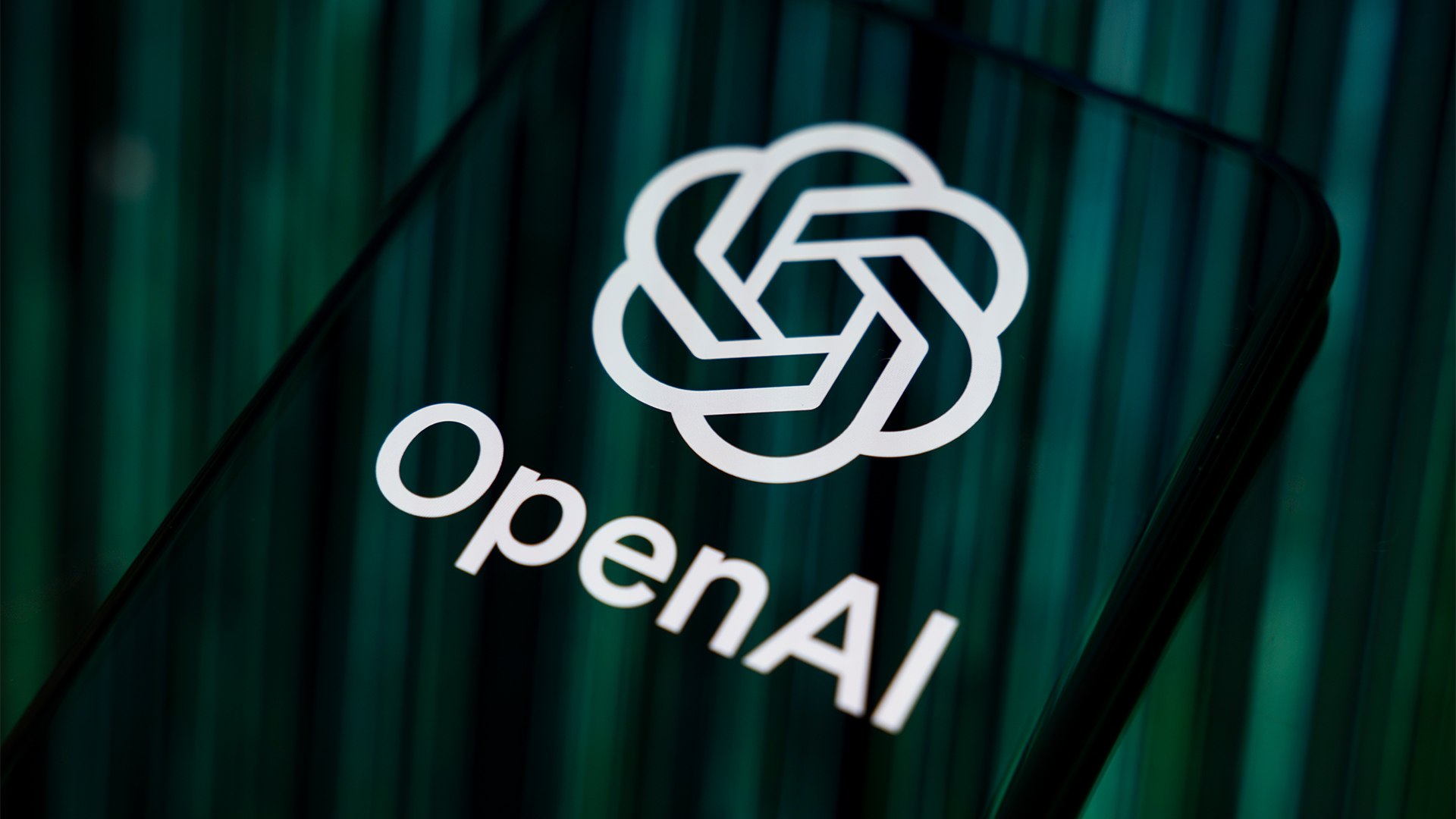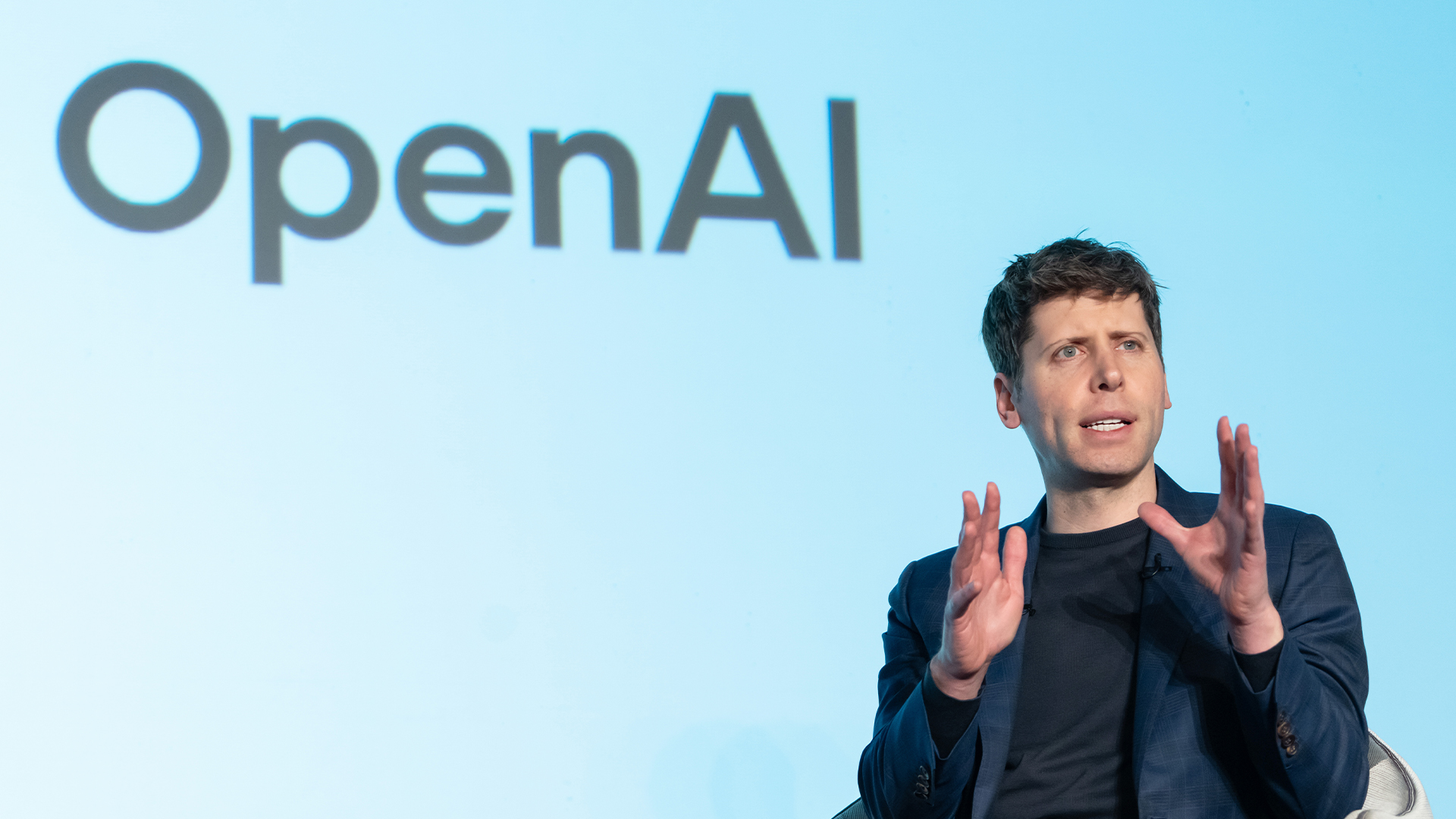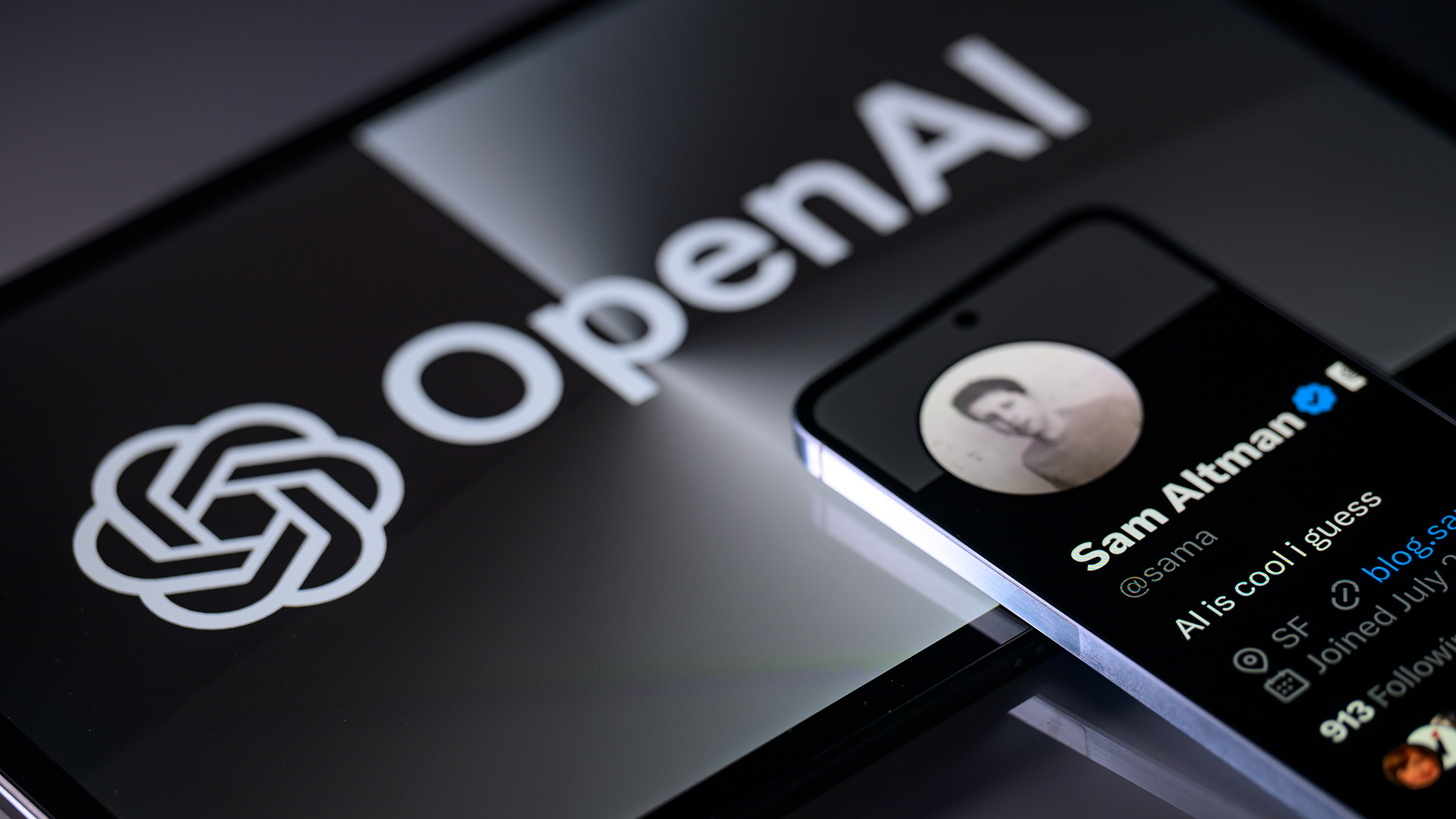OpenAI talks a big game with its GPT Store, but will it deliver quality?
The OpenAI GPT Store may become an oversaturated data privacy nightmare


OpenAI has announced users will soon be able to build and publish their own custom applications for specific tasks.
During its first developer event, held in San Francisco, CEO Sam Altman celebrated reaching over 100 million weekly ChatGPT users, with around 2 million devs using their API, and 92% of Fortune 500 companies building on their products.
The centerpiece of the event was the unveiling of GPTs, custom versions of ChatGPT that OpenAI said will enable users to easily develop and publish their own chatbots tailored for specific use-cases.
Altman said users will be able to build GPTs without any coding knowledge, using plain language prompts, describing exactly what they want while chatting with ChatGPT.
These GPTs could be focused on boosting productivity or simply providing fun. A demonstration during the event showed an engineer creating a travel companion that could quickly provide price estimates, sight-seeing suggestions, and process and store documents such as flight tickets or hotel reservations directly within the app.
Altman announced users will be able to publish their creations on the OpenAI ‘GPT Store’, a public marketplace for GPTs.
Furthermore, OpenAI announced their plans to share the revenue generated by the most popular GPTs with developers, however details on the exact nature of the revenue share were not provided.
Sign up today and you will receive a free copy of our Future Focus 2025 report - the leading guidance on AI, cybersecurity and other IT challenges as per 700+ senior executives
The marketplace will be ‘curated’ by OpenAI and all GPTs published on the store would be made to follow the company’s pre-existing usage policies, which include protections against generating violent, fraudulent, and harassing content.
Developers using OpenAI’s platform will also be protected by the ‘Copyright Shield’.
Under this program, OpenAI promises to pay the legal fees of premium users when IP lawsuits are filed against them for content created using the company’s products.
OpenAI GPT Store could "dilute" quality of apps
The announcement has been a source of excitement over the potential for users to create their own AI powered assistants. However, some industry stakeholders are not convinced the OpenAI GPT Store will create as much value as people think.
In a post on social media platform X, technology futurist, keynote speaker, and author Theo Priestley advised users to manage their expectations.
A primary concern is that the lower barrier to entry for AI-driven app development might create more problems than it solves and results in a “dilution” of quality across the marketplace.
Speaking to ITPro, Priestley said the plain language development model means it could take potentially minutes to develop a GPT and publish it on OpenAI’s store.
RELATED RESOURCE

Identify security vulnerabilities within your own organization before the cyber criminals do
DOWNLOAD NOW
Issues such as cloning may become widespread and dilute the value of apps on the platform overall, with only a handful actually providing useful functionality.
“It costs nothing to create simple app ideas but at the same time there is nothing qualitative about this approach. We've already seen [something] similar with AutoGPT and an 'AI Agent Store' that has automated agent personas like ‘Sales Rep’, ‘Call Centre Agent’, [and] ‘Life Coach’.”
Priestley also raised the potential danger of apps created for personal use not having adequate data-protection ‘guardrails’ in place.
“For example, [chatbots such as] a life coach or personal therapist, both of which would require a lot of personal information being sent back and forth to OpenAI,” he said.
IT professionals at enterprises looking to implement GPTs developed for internal use may also face a number of complications, with employees creating unsupported apps to optimize their workflow.
“Business users creating their own unsupported apps to perform tasks or parts of their workflow without IT knowledge, [could be] breaching data protection and IP rules internally etc,” he said.
“It's worse than no code/ low code platforms, a new generation of throwaway apps created for a single one-off use case then left to litter the IT estate.”

Solomon Klappholz is a former staff writer for ITPro and ChannelPro. He has experience writing about the technologies that facilitate industrial manufacturing, which led to him developing a particular interest in cybersecurity, IT regulation, industrial infrastructure applications, and machine learning.
-
 Morgan Stanley research warns AI is having a huge impact on jobs
Morgan Stanley research warns AI is having a huge impact on jobsNews Analysis of five sectors highlights an "early warning sign" of AI’s impact on jobs
-
 AI is “forcing a fundamental shift” in data privacy and governance
AI is “forcing a fundamental shift” in data privacy and governanceNews Organizations are working to define and establish the governance structures they need to manage AI responsibly at scale – and budgets are going up
-
 DeepSeek rocked Silicon Valley in January 2025 – one year on it looks set to shake things up again with a powerful new model release
DeepSeek rocked Silicon Valley in January 2025 – one year on it looks set to shake things up again with a powerful new model releaseAnalysis The Chinese AI company sent Silicon Valley into meltdown last year and it could rock the boat again with an upcoming model
-
 OpenAI says prompt injection attacks are a serious threat for AI browsers – and it’s a problem that’s ‘unlikely to ever be fully solved'
OpenAI says prompt injection attacks are a serious threat for AI browsers – and it’s a problem that’s ‘unlikely to ever be fully solved'News OpenAI details efforts to protect ChatGPT Atlas against prompt injection attacks
-
 OpenAI says GPT-5.2-Codex is its ‘most advanced agentic coding model yet’ – here’s what developers and cyber teams can expect
OpenAI says GPT-5.2-Codex is its ‘most advanced agentic coding model yet’ – here’s what developers and cyber teams can expectNews GPT-5.2 Codex is available immediately for paid ChatGPT users and API access will be rolled out in “coming weeks”
-
 OpenAI turns to red teamers to prevent malicious ChatGPT use as company warns future models could pose 'high' security risk
OpenAI turns to red teamers to prevent malicious ChatGPT use as company warns future models could pose 'high' security riskNews The ChatGPT maker wants to keep defenders ahead of attackers when it comes to AI security tools
-
 Some of the most popular open weight AI models show ‘profound susceptibility’ to jailbreak techniques
Some of the most popular open weight AI models show ‘profound susceptibility’ to jailbreak techniquesNews Open weight AI models from Meta, OpenAI, Google, and Mistral all showed serious flaws
-
 'It's slop': OpenAI co-founder Andrej Karpathy pours cold water on agentic AI hype – so your jobs are safe, at least for now
'It's slop': OpenAI co-founder Andrej Karpathy pours cold water on agentic AI hype – so your jobs are safe, at least for nowNews Despite the hype surrounding agentic AI, OpenAI co-founder Andrej Karpathy isn't convinced and says there's still a long way to go until the tech delivers real benefits.
-
 OpenAI signs another chip deal, this time with AMD
OpenAI signs another chip deal, this time with AMDnews AMD deal is worth billions, and follows a similar partnership with Nvidia last month
-
 OpenAI signs series of AI data center deals with Samsung
OpenAI signs series of AI data center deals with SamsungNews As part of its Stargate initiative, the firm plans to ramp up its chip purchases and build new data centers in Korea